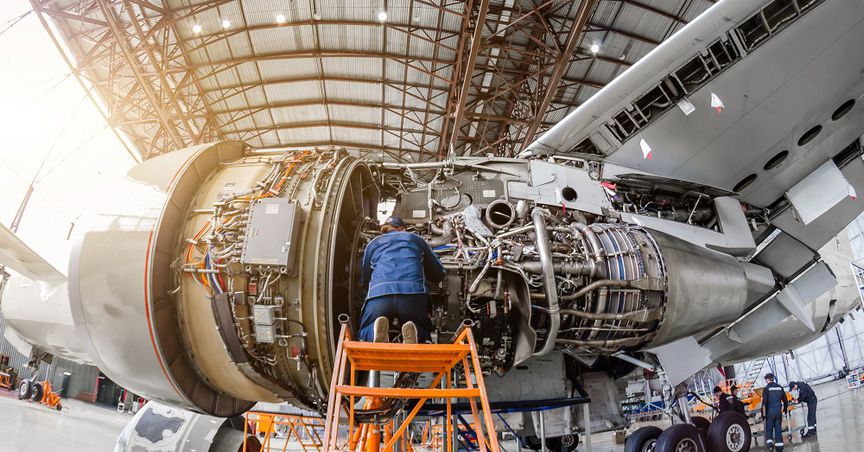The ongoing Covid-19 pandemic outbreak has severely hit the global aviation, and as per the International Air Transport Association (IATA), the sector is likely to witness a plunge of 55 per cent or $314 billion in 2020 in annual passenger revenue, in comparison to the previous year. Almost all the affected nations of the world have gone into lockdown and travel both domestic & international remains restricted for the last couple of months. With the entire world slipping into recession, the peak of the economic shock due to the COVID-19 crisis is expected to become visible in the second quarter of 2020. The situation would be further exacerbated by continuing the travel restrictions.
The ongoing Covid-19 pandemic spread and plummeting oil prices due to demand and supply factors have wreaked havoc, leading to global meltdown and has sparked negative sentiments among investors all around the world. Most of the sectors have turned red but its the jet makers, travel & leisure who have been worst hit by this global pandemic.
As most of the countries have enforced lockdowns to contain the spread of the deadly virus, the people cannot travel, not just beyond borders, but domestic travel has also been severely hit. Most of the travel stocks have turned red around the globe, and many of the aviation companies are on the brink of collapse.
The rapid spread of the pandemic over the past one month has worsened the situation for global trade. According to the World Health Organisation website, 1,878,489 people have been tested positive out of which 119,044 died across 213 countries as on 15th April 2020.
The situation further got aggravated, and the airlines reduced orders of newer aircraft. The world’s most prominent jet makers Boeing and Airbus are likely to suffer the most. The automotive industry has already been halted amid the coronavirus crisis. Furthermore, the inventory is also going to dent the company with storage and carrying costs.
Amid the deadly virus outbreak, Airbus has shelved its plans for a new A321 plant. The aircraft manufacturer is likely to reduce the manufacturing of units of its bestselling Airbus A320 every month by one-third to 40 from 60 earlier at its assembly lines in Hamburg and Toulouse amid the unprecedented crisis and its devastating impact. Furthermore, the company believes that conditions will not change much even after travel restrictions are eased. The company has prioritised the safety of its people amid global lockdown. However, Airbus has not proposed any layoff or a furlough scheme yet.
Last month, Europe’s airlines were warned about a potential loss of $76 billion in passenger revenues over the course of 2020 by the industry body due to enforced lockdowns in order to contain the deadly pandemic. According to the International Air Transport Association (IATA), European airlines are likely to be a matter of concern due to an unprecedented decline in the number of passengers with the persisting fear of Covid-19 pandemic.
According to IATA, the overall revenues for the industry would plunge by 50 per cent in 2020 as compared to 2019. As per IATA March 24th,2020, estimates the global revenues are expected to decrease by $252 billion in 2020 along with 38 per cent lesser demand for passenger flights. The UK aviation industry called the government to intervene with liquidity injections, loans and tax reliefs. However, the British government is yet to announce any special package for the airline industry. The government had asked the airlines to explore options to raise money from existing investors.
The plight of airline staffs
Airline workers across the world are fearing layoffs amid the coronavirus pandemic. In the United States, one of the largest airlines, Delta airlines has asked its staff members to voluntarily opt for unpaid leaves. According to Delta, more than 10 thousand airline staff members have voluntarily opted for unpaid leaves. The US government is likely to lend its airlines industry with USD 60 billion.
Recently, British Airways also announced suspension until the end of May of its 30,000 employees, under the state furlough scheme for companies impacted by the Covid-19 pandemic. However, the suspended employees would be paid 80 per cent of their monthly salaries up to £2,500 per month under the terms of the state scheme. besides, the company had asked 4,000 pilots to take unpaid leave for four weeks between April and May.
UK’s Easyjet recently grounded its entire fleet amid the coronavirus outbreak. The company has not detailed about re-commencing the operations and was likely to furlough around 4,000 employees this month. The company would look forward to cutting costs of £4.5 billion. Meanwhile, the Treasury and Bank of England have come to the rescue of Easyjet by providing it with £600 million loan. Easyjet is likely to borrow another £407 million from the commercial lenders to ensure smooth operations of the company.
Meanwhile, Australian airlines are continuously lobbying with the government, seeking the credit of $5.6 billion to ensure liquidity through the deadly virus pandemic. Qantas Airways has laid off 20,000 employees, and Virgin Airlines is likely to ground its 8,000 planes until the skies reopen. New Zealand government though has credited $890 million to Air New Zealand in the form of convertible shares.
A few days back, Air Canada, Canada’s largest airline, was reportedly going to lay off 5,000 employees amid the global lockdown in the upcoming weeks.
The Way forward
The global aviation sector seeks financial support from their respective governments. The governments around the world must factor special aviation packages in their fiscal relief measures. This special assistance for the aviation industry should be at the core of policymakers for all the governments. The airline sector is one of the major contributors in the economy with 65.5 million jobs worldwide. It is also important to note that even in this hour of unprecedented crisis, the airlines are helping in keeping vital supply chains up and running.
IATA has proposed that governments should provide financial assistance to bolster passenger and cargo carriers for reduced revenues and liquidity amid the coronavirus crisis. IATA has vouched for easy access to Loans and corporate bonds by the governments or central banks, which is a vital source of funding for airlines. Moreover, relief in taxation along with an extension of payment terms for 2020 should be provided by the governments.
Here, it is also important to note the lockdown impact on the environment; the air traffic has dropped to minimum levels, which has led to a steep dip in greenhouse gases emissions, which might be temporary in nature but a good sign for the environment. Before the pandemic, the carbon emissions from aviation had roughly doubled between 1990 and 2019 and had been rising consistently. Therefore, the government’s special packages for the airline industry should factor provisions for large emissions cuts.
Disclaimer
The website has been prepared for informational purposes only and is not intended to be used as a complete source of information on any particular company. The above article is NOT a solicitation or recommendation to buy, sell or hold the stock of the company (or companies) under discussion. Kalkine does not in any way endorse or recommend individuals, products or services that may be discussed on this site.





